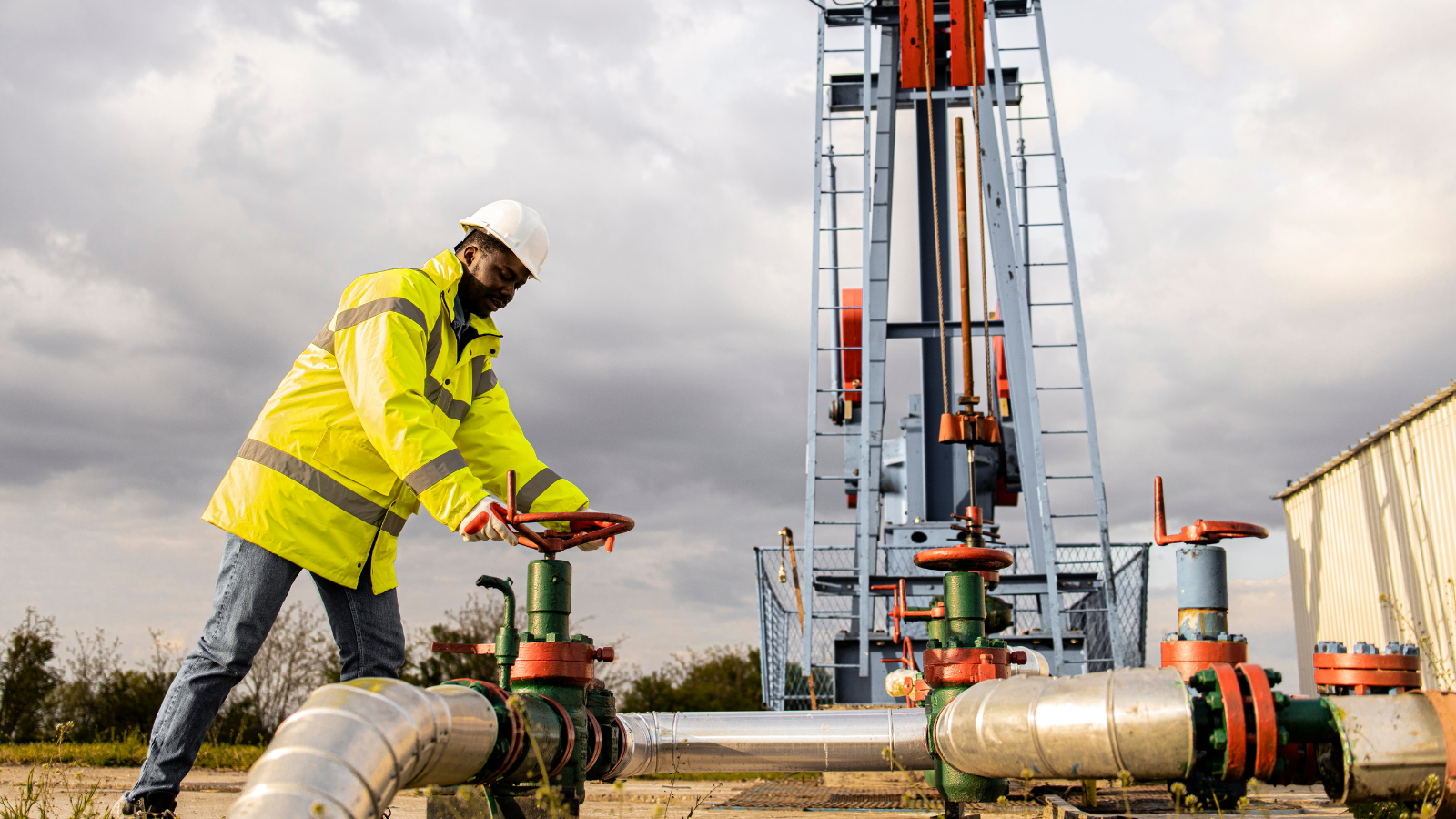The oil and gas industry in the United States underwent significant transformations during Donald Trump’s presidency (2017-2021), with his policies largely supporting expansion and deregulation. Trump’s stance on energy production and its implications for jobs—including in accounting, finance, and human resources—continue to be a topic of interest in his second term. Houston, a key hub for the oil and gas sector, will likely feel both the historical impact of Trump’s policies and the potential effects of his 2025 term on job growth.
Trump’s Impact on the Oil and Gas Industry (2017-2021)
During Trump’s first term, his administration focused heavily on energy independence and reducing regulatory burdens on the oil and gas industry. Key policies and actions included:
- Deregulation and Policy Reversal: One of the Trump administration’s signature policies was deregulation, particularly within the energy sector. This included rolling back environmental regulations like the Clean Power Plan, the Waters of the United States rule, and restrictions on methane emissions. The goal was to reduce the regulatory costs on energy companies and encourage domestic production.
- Source: The Washington Post, “Trump’s Environmental Rollbacks” (2020)
- Energy Dominance and Expanding Oil Production: Trump’s “energy dominance” agenda sought to bolster U.S. oil and gas production, with the aim of making the U.S. a net exporter of energy. This included expanding drilling on federal lands and offshore, facilitating the approval of pipelines such as the Keystone XL and Dakota Access pipelines, and increasing oil production in shale-rich regions like the Permian Basin.
- Source: U.S. Energy Information Administration (EIA), “U.S. Crude Oil Production” (2021)
- Tax Cuts and Incentives for the Oil Industry: The Tax Cuts and Jobs Act of 2017 reduced corporate tax rates, which benefited large oil and gas companies by increasing their profitability. Additionally, the bill allowed for immediate expensing of capital investments in the oil and gas sector, incentivizing further investment in exploration and production.
- Source: The Brookings Institution, “How the Tax Cuts and Jobs Act Affects Energy” (2017)
- Strategic Petroleum Reserve (SPR) and Energy Exports: Trump’s policies also included selling off portions of the U.S. Strategic Petroleum Reserve to raise revenue while also pushing for more energy exports. This helped increase U.S. crude oil exports, especially to countries like China and India.
- Source: Reuters, “Trump’s Sale of U.S. Oil Reserves” (2020)
Trump’s Outlook on Oil and Gas for 2025: A Second Term Vision
Trump has maintained a strong pro-energy stance, particularly on oil and gas. His outlook can be inferred from his campaign speeches and policy positions leading up to the 2024 election. Key aspects of his energy platform for 2025 include:
- Revitalizing Domestic Oil and Gas Production: Trump has consistently promised to renew policies that favor domestic oil production, including reversing any restrictions on drilling on federal lands and offshore areas. His campaign rhetoric suggests that he would push for increased development in shale plays and continue supporting the fossil fuel industry as a job creator.
- Source: Trump’s Campaign Speech on Energy (2024)
- Opposition to Green New Deal and Clean Energy Initiatives: Trump’s stance on climate change remains skeptical of policies that promote renewable energy at the expense of fossil fuels. He has expressed opposition to the Green New Deal and other progressive climate initiatives, arguing that they harm jobs in traditional energy sectors like oil and gas. This opposition suggests that Trump would prioritize fossil fuel jobs, including in upstream oil production, over renewable energy development.
- Source: The New York Times, “Trump’s Views on Climate and Energy” (2020)
- Energy Exports and Global Influence: Trump’s energy policy for 2025 would likely include continued efforts to increase energy exports, particularly liquefied natural gas (LNG) and crude oil. He views energy exports as a key element of U.S. geopolitical strategy and economic strength, helping reduce dependence on foreign oil while bolstering U.S. influence on the global stage.
- Source: Politico, “Trump’s Vision for U.S. Energy Exports” (2020)
- Trump’s Stance on Electric Vehicles: On January 6, 2025, Trump signed a few executive actions including an end to the electric vehicle mandate advocating for consumers and their right to choose products used in their everyday life whether it is a vehicle, dishwasher, or stove.
- Source: npr, “Trump Signs Actions on Jan. 6, TikTok, Immigration, and More.” (2025)
Impact on Jobs in the Oil and Gas Sector: Accounting, Finance, and Human Resources
The policies and outlooks from the Trump administration have significant implications for jobs, particularly in sectors such as accounting, finance, and human resources. Here’s how they intersect:
- Job Growth in Oil and Gas: Trump’s push for deregulation and increased domestic oil production during his presidency contributed to job growth in the oil and gas industry. The boom in shale oil production, especially in states like Texas, resulted in increased demand for skilled workers. This included roles in accounting and finance to manage complex financial transactions and investments related to oil production and exploration.
- Source: U.S. Bureau of Labor Statistics (BLS), “Oil and Gas Extraction Employment” (2020)
- Accounting and Finance Jobs: The increased investment in oil and gas projects led to greater demand for accounting and financial professionals, particularly in cost management, project financing, and tax compliance. Deregulation reduced the complexity of financial reporting requirements, making it easier for oil and gas companies to manage their finances and focus on expansion.
- Source: Houston Chronicle, “Demand for Oil and Gas Financial Experts Soars” (2021)
- Human Resources and Talent Acquisition: The rapid expansion of oil and gas production during Trump’s term also created a need for human resources professionals to recruit, train, and manage workers. Houston, as a major hub for the energy sector, saw growth in HR roles related to oil and gas operations, particularly for companies involved in drilling, production, and energy services. Many of these positions focused on recruitment and retention, given the competitive nature of the labor market.
- Source: The Houston Business Journal, “Energy Boom Drives HR Jobs in Houston” (2019)
The Houston Job Market: A Close Look
Houston, often considered the energy capital of the world, has been deeply influenced by the oil and gas sector. Trump’s pro-oil policies helped fuel a resurgence in the Houston job market, particularly in the oilfield services, exploration, and extraction sectors. Between 2017 and 2020, Houston saw strong growth in energy-related job sectors, although the COVID-19 pandemic caused a brief downturn.
Looking ahead of Trump’s second term, his energy policies will likely help stabilize and even boost Houston’s oil and gas industry. In particular, the continuation of deregulation, support for shale production, and increased energy exports could encourage more investment and job creation in the region. As such, the Houston job market is expected to remain closely tied to the fortunes of the oil and gas industry.
- Source: Greater Houston Partnership, “Houston Energy Outlook” (2020)
Conclusion
The oil and gas industry experienced significant policy shifts under President Trump’s first term, particularly in deregulation, energy production, and exports. In 2025, his focus on revitalizing domestic oil and gas production, maintaining opposition to renewable energy policies, and promoting energy exports could further shape the industry. For jobs in accounting, finance, and human resources, these policies translate into greater demand for professionals skilled in managing complex energy projects and recruitment for energy companies. Houston, as a critical energy hub, will continue to feel the impact of these policies, with a potential for job growth if these pro-oil agendas are pursued.
In the age-old saying, and as Trump has repeatedly quoted, “Drill, baby, drill.”









